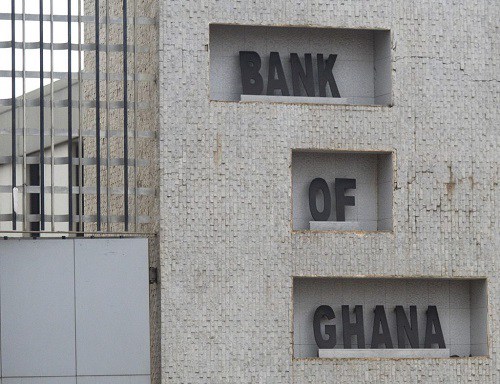Ghana’s central bank plans to prosecute executives of failed local lenders suspected of dissipating depositors’ funds and insider dealing, the regulator told Reuters on Tuesday.
The Bank of Ghana on Aug. 1 said it had revoked the licenses of Unibank and smaller peers Royal Bank, Beige Bank, Sovereign Bank and Construction Bank, and had appointed a receiver to manage their assets because they had become insolvent.
Deputy central bank governor Elsie Awadzi told Reuters the central bank was also considering barring culpable directors from operating in the Ghanaian financial sector.
“We are working very hard on submitting a dossier on each of these banks to the law enforcement agencies … to further investigate criminal behaviour or what could potentially be criminal behaviour and to prosecute,” Awadzi said in an interview in Accra, without naming any of the individuals under investigation.
The regulator has merged the assets of the collapsed banks into a new state-owned lender, Consolidated Bank Ghana, to protect depositors’ money and avoid a financial sector crisis.
Awadzi said the regulator’s primary commitment was to protect depositors’ funds and ensure a smooth transition to the new bank.
“That has gone well so far and we are going to ensure that integrity is returned to the financial sector by ensuring that persons whose conduct contributed to the banks’ failure will not be shielded,” she added.
In a report on Unibank, the biggest of the failed lenders and which ranked as the country’s sixth-largest lender by assets before its collapse, the central bank cited shareholders and other affiliates as taking for themselves a total of 5.3 billion cedis ($1.1 bln), representing 75 percent of its total assets.
It said 3.7 billion cedis of the funds taken by shareholders were neither granted through the normal credit delivery process or reported in the bank’s loan books.
Unibank founder Kwabena Duffuor rejected the charges.
“We believe the figures the central bank is putting out are not right,” Duffuor told Reuters. “What they are saying is not true. Besides, we have not seen a copy of the report that was supposedly produced on our bank because they are reluctant to give (it to) us.”
He said Unibank had written to the central bank to complain that what it had done was wrong.
RISK MANAGEMENT
Awadzi said the five banks – all of which had declined comment when their licenses were revoked on Aug. 1 – had a cumulative deficit of 5.76 billion cedis, for which the government had issued bonds to enable the new entity Consolidated Bank to finance inherited liabilities.
In addition, the government had capitalised Consolidated Bank with 450 million cedis.
Awadzi said the central bank had authorised the receiver to follow and retrieve assets taken by managers of the defunct banks.
Years of weak risk management, poor corporate governance and non-compliance to professional rules and ethics by officials, including central bank supervisors, also accounted for the banks’ collapse, she said.
Local media reports say state anti-graft body the Economic and Organised Crime Office (EOCO) has begun questioning some top officials of the defunct banks.
Ratings agency Moody’s welcomed the central bank’s measures to bolster financial stability, but warned that the cost of setting up the new bank would push Ghana’s debt above 70 percent of gross domestic product (GDP) by December, compared with 63.8 percent as of May.
Ghana is in its final year of a $918 million deal with the International Monetary Fund to restore fiscal stability, reduce public debt and improve financial sector integrity.
The Bank of Ghana in August last year liquidated two local banks – UT Bank, then listed on the Ghana Stock Exchange, and Capital Bank – as part of measures by the government to protect financial stability.





